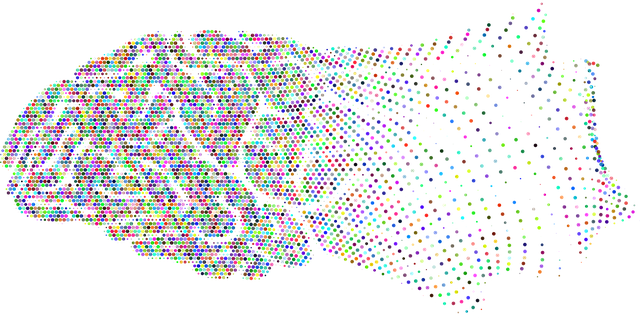The RFM model (Resilience, Fitness, Mentality) transforms cancer care by prioritizing holistic well-being beyond physical treatment. Centennial Cancer Issues Therapy incorporates this framework to empower patients through resilience-building exercises like mindfulness meditation, tailored fitness activities, and positive thinking promotion. Regular participation leads to long-term mental health improvements, enhancing coping abilities and quality of life for cancer survivors. Specialized support post-diagnosis, including the Mental Wellness Podcast Series and Risk Assessment tools, addresses identity shifts, trauma processing, and maintaining control years after cancer. Integrating RFM principles with evidence-based practices like Social Skills Training and Mental Wellness Coaching revolutionizes post-treatment support for Centennial Cancer Issues Therapy patients, focusing on Mind Over Matter and cultivating mental resilience for managing long-term health challenges.
“In the realm of cancer care, addressing patients’ psychological resilience is a growing focus, as evidenced by the rise in Resilient Factors Measurement (RFM) and associated therapeutic interventions. This article delves into the role of RFM in enhancing cancer survivors’ well-being. We explore its impact on managing treatment-related challenges, offering a comprehensive guide to various resilience-building exercises. From understanding the core principles to integrating these practices into post-treatment support systems, we uncover strategies to foster long-term psychological resilience among cancer patients, highlighting potential future research directions within Centennial Cancer Issues Therapy.”
- Understanding RFM and its Role in Cancer Care
- The Impact of Resilience-Building Exercises on Patients' Well-being
- Different Types of RFM Interventions for Cancer Survivors
- Integrating RFM into Post-Treatment Support Systems
- Long-Term Benefits and Future Research Directions
Understanding RFM and its Role in Cancer Care

The RFM model, or Resilience, Fitness, and Mentality, is a powerful framework gaining traction in cancer care. It recognizes that navigating cancer’s challenges requires more than just physical treatment; it involves fostering resilience to support individuals’ overall well-being. This holistic approach addresses the mental and emotional aspects often overlooked but crucial for long-term recovery and survival. By understanding an individual’s resilience, fitness level, and mindset, healthcare professionals can tailor interventions and therapies, such as community outreach programs focused on mental wellness and confidence-boosting activities, to empower patients during their cancer journey.
Centennial Cancer Issues Therapy leverages the RFM model to enhance patient outcomes. This strategy involves identifying and strengthening a patient’s inherent resilience, encouraging physical activity tailored to their fitness level, and promoting positive thinking and mental fortitude. Through such individualized support, patients can better cope with treatment side effects, manage stress, and maintain a sense of control over their lives during this challenging period.
The Impact of Resilience-Building Exercises on Patients' Well-being

Resilience-building exercises have been shown to significantly enhance the well-being of patients facing challenging health conditions, such as those navigating Centennial Cancer Issues Therapy. These exercises go beyond mere physical activity; they are powerful tools that foster inner strength development and self-esteem improvement, enabling individuals to cope more effectively with stress, anxiety, and even depression. By incorporating practices like mindfulness meditation, patients can learn to stay present, reduce symptoms of distress, and cultivate a deeper sense of calm amidst their journey.
The benefits extend beyond the immediate session; regular participation in resilience exercises can lead to long-term improvements in mental health. They equip individuals with coping mechanisms that support not just survival but also thriving during and after cancer treatment. This holistic approach recognizes the profound impact that emotional well-being has on a patient’s overall health, ultimately enhancing their quality of life.
Different Types of RFM Interventions for Cancer Survivors

Cancer survivors face unique challenges that extend beyond physical recovery, highlighting the crucial role of RFM interventions in their journey towards holistic healing and mental wellness. These interventions focus on enhancing resilience, fostering coping mechanisms, and supporting individuals in navigating the psychological aftermath of cancer. One such approach is Centennial Cancer Issues Therapy, which delves into long-term psychological support for survivors, addressing specific issues that may emerge years after diagnosis. This therapy explores various aspects, including trauma processing, adjustment to changes in identity and body image, and maintaining a sense of control and purpose.
The Mental Wellness Podcast Series Production offers an accessible medium to reach a wide audience of cancer survivors. These podcasts provide valuable guidance on mental wellness journaling exercises, encouraging individuals to reflect on their experiences and emotions. Through interactive discussions and expert insights, listeners gain tools for managing anxiety, depression, and stress post-cancer. Moreover, the Risk Assessment for Mental Health Professionals is essential in identifying at-risk patients early on, allowing for timely interventions and personalized support tailored to each survivor’s unique needs.
Integrating RFM into Post-Treatment Support Systems

Integrating RFM (Resilience, Flexibility, and Mastery) principles into post-treatment support systems is a game-changer in addressing the unique needs of individuals navigating Centennial Cancer Issues Therapy. This approach extends beyond traditional care by focusing on empowering patients to embrace Mind Over Matter Principles as they transition through their cancer journey. By incorporating exercises that foster resilience, individuals can develop a deeper sense of control and adaptability, crucial for managing the challenges that often arise post-treatment.
RFM strategies, when coupled with evidence-based practices like Social Skills Training and Mental Wellness Coaching Programs Development, offer a holistic framework for healing. These methods encourage patients to explore their emotions, refine coping mechanisms, and cultivate a positive mindset—all essential components of building mental fortitude. Through such integrated support systems, survivors can better cope with anxiety, depression, and other psychological side effects commonly associated with cancer treatment, ultimately enhancing their overall well-being.
Long-Term Benefits and Future Research Directions

The long-term benefits of resilience-building exercises extend far beyond immediate emotional support. Research has shown that fostering inner strength and effective stress management techniques can significantly enhance an individual’s overall well-being, especially in the face of chronic conditions such as Centennial Cancer Issues Therapy (CCIT). By participating in these programs, individuals not only learn to cope with the physical challenges but also develop mental resilience, which is crucial for navigating the complexities of long-term health issues. This proactive approach has the potential to reduce the psychological impact of illness and promote better quality of life outcomes.
Future research directions could explore the integration of these exercises into standard healthcare practices, particularly in supportive care settings. Further studies on the effectiveness of tailored programs for specific demographics, such as aging populations or those dealing with mental illness, would contribute to the expansion of knowledge in this field. Additionally, investigating the long-term sustainability of these benefits and their impact on overall health equity is essential, considering the ongoing efforts towards Mental Illness Stigma Reduction Efforts and the role of Stress Management Workshops Organization in fostering inclusive communities.
Resilience is a powerful tool in the fight against cancer, and RFM interventions offer a promising approach to enhancing patients’ well-being. By integrating resilience-building exercises into post-treatment support systems, we can empower cancer survivors to navigate the challenges they face. The long-term benefits of these practices are evident, fostering improved mental health, quality of life, and overall survival rates. As research in this field continues to evolve, exploring diverse RFM interventions tailored to specific cancer types will further contribute to the comprehensive care of cancer patients and survivors, ensuring a brighter future for those facing this complex disease, especially in addressing critical Centennial Cancer Issues.














